Power of Two: Matthew Vasilev and Katie Selbee of Twin Island Cider
By juliana cao on July 13, 2022
Power of Two: Matthew Vasilev and Katie Selbee of Twin Island Cider
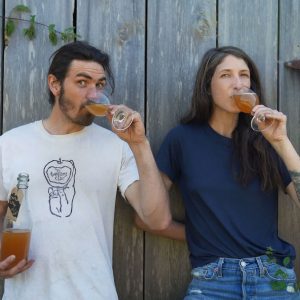
Matthew Vasilev and Katie Selbee (Twin Island Cider)
July 14, 2022
“We met at UBC Farm over eight years ago – I was completing a Sustainable Farming Practicum there and Matthew was a new farm volunteer.”
Katie Selbee, a UBC Farm Practicum grad, and Matthew Vasilev, a former volunteer at the Farm, run Twin Island Cider together on Pender Island, where they make low-intervention apple and perry (pear) cider fermented using native yeasts.
Read more about how they balance cider making, orchard tending, and business running at Scout Magazine.
Read More | No Comments
By juliana cao on July 6, 2022
Hound found: on the hunt for truffles in British Columbia
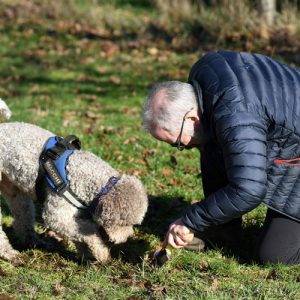
Truffle Dog Team: John Kelly with Macchi
July 6, 2022
Dr. Shannon Berch, adjunct professor with the Faculty of Land and Food Systems and an associate member in Botany at the University of British Columbia, comments on the science of truffle cultivation. Berch leads the Truffle Establishment in British Columbia, a project at the UBC Farm which focuses on farming Mediterranean black winter truffles in a mutualistic symbiotic relationship with English oak trees.
Read More | No Comments
By juliana cao on June 28, 2022
Food programs should be part of school
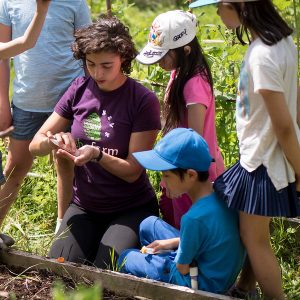
June 29, 2022
“Children have the right to adequate, nourishing food. Yet, one in six B.C. families worries about or lacks enough money for food.”
Dr. Jennifer Black (Faculty of Land and Food Systems), an associate here at the CSFS, co-wrote about why B.C.’s next budget should support universal school food programs.
Read More | No Comments
By juliana cao on June 28, 2022
Get ready for the surprise inside this burger
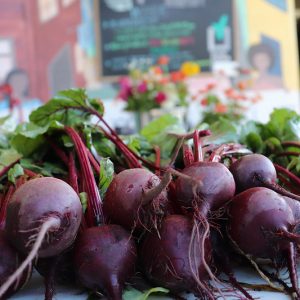
June 28, 2022
UBC residence chef Johnny Bridge combines the UBC Farm’s beets with Canadian beef for a fun and surprising experience. “Canadian beef is among the world’s best,” Bridge says. “Mix that with the UBC Farm, and it’s a chef’s dream. I wanted to highlight them both and create a flavour and visual treat.”
Find the full story at the Toronto Star.
Read More | No Comments
By juliana cao on June 27, 2022
B.C. honey bee keepers lost 32% of colonies over winter – which is higher than normal
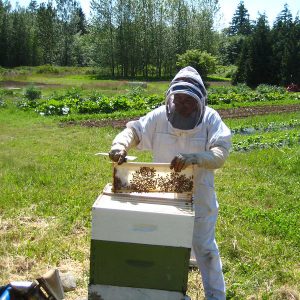
June 27, 2022
CSFS Associate Dr. Leonard Foster (Michael Smith Lab; Department of Biochemistry and Molecular Biology) said he suspects that weather patterns will play an increasingly significant role in honey bee colony loss.
Read More | No Comments
By juliana cao on June 23, 2022
xʷc̓ic̓əsəm Garden named one of the 100 Garden Moments of Canada
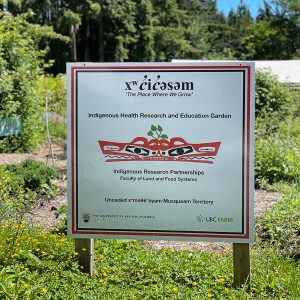
June 27, 2022
Congratulations to all our friends at the xʷc̓ic̓əsəm Garden! The xʷc̓ic̓əsəm Garden (Indigenous Health Research and Education Garden), located at the UBC Farm, has been recognized as one of the 100 Garden Moments of Canada – a list that will serve as the basis of Canada’s Garden Hall of Fame.
See the full list here.
Read More | No Comments
By juliana cao on June 22, 2022
Utilizing UBC Advanced Research Computing for Biodiversity Monitoring
Featuring Dr. Matthew Mitchell and Laura Super
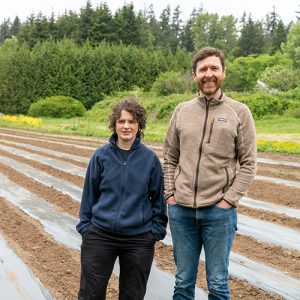
Dr. Matthew Mitchell and Laura Super at the UBC Farm (UBC IT Communications)
June 23, 2022
The CSFS’s Associate Dr. Matthew Mitchell and Faculty of Forestry PhD Candidate Laura Super discuss how they use UBC Advanced Research Computing (ARC) to answer questions about biodiversity conservation, landscape ecology, and the impacts of climate change.
ARC is being used for the Biodiversity Monitoring project at the UBC Farm, which helps us understand how biodiversity at the Farm is changing over time and how this affects important ecosystem services that aid people, help crops grow, and contribute to overall ecosystem sustainability.
Read the full article at UBC ARC.
Read More | No Comments
By melanie kuxdorf on June 8, 2022
‘Higher than historical losses’: B.C. bees face growing threat of deadly virus
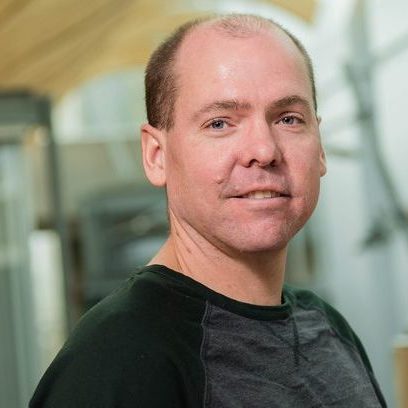
Dr. Leonard Foster
June 6, 2022
CSFS Associate Dr. Leonard Foster (Michael Smith Lab; department of biochemistry and molecular biology) commented on how Canada has seen historical losses of bees due to the deformed wing virus.
Read More | No Comments
By melanie kuxdorf on June 8, 2022
UBC Students use Artifical Intelligence (AI) to Tackle Heat Damage
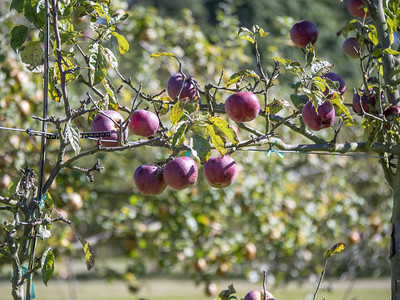
May 31, 2022
Students from UBC Sauder School of Business and UBC Faculty of Applied Science have teamed up on a project that uses AI to help prevent heat damage in fruit crops. When surface temperatures of fruit monitored by the AI reach a certain threshold, it initiates a cooling system.
You can see their pilot study set up at the UBC Farm this summer!
Read the full article at UBC Sauder.
Read More | No Comments
By melanie kuxdorf on June 8, 2022
Detecting Insects is Getting High-Tech on UBC Campus
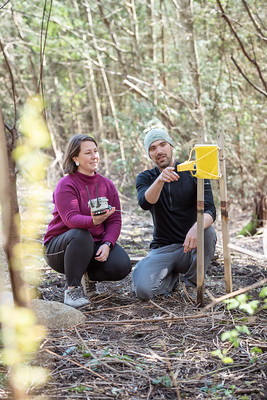
Drs. Juli Carrillo and Quentin Geissman inspect a Sticky Pi trap.
May 24, 2022
A new “sticky” Campus as a Living Laboratory project will enable CSFS researchers Drs. Juli Carrillo and Quentin Geissmann to monitor insects in real-time, on a scale never done before.
“This project promises to help us understand insect biodiversity, which we know is both crucial to ecosystems, and affected by human activities,” says Juli Carrillo, CSFS Associate and Assistant Professor in the Faculty of Land and Food Systems, and lead researcher of the Digital Detection Web for On-Campus Insects project.
Read More | No Comments









